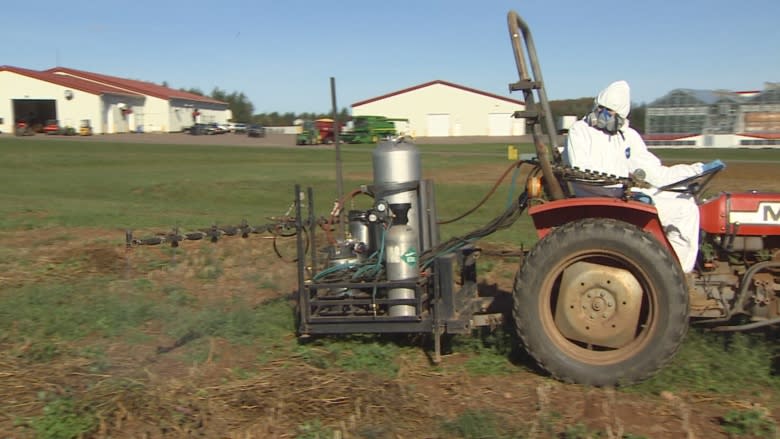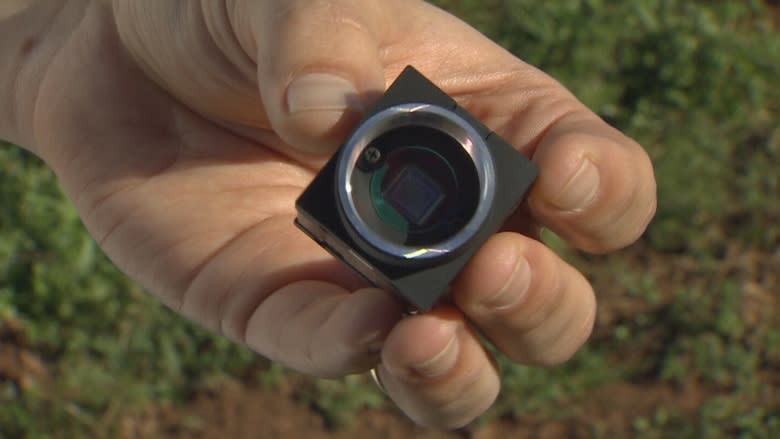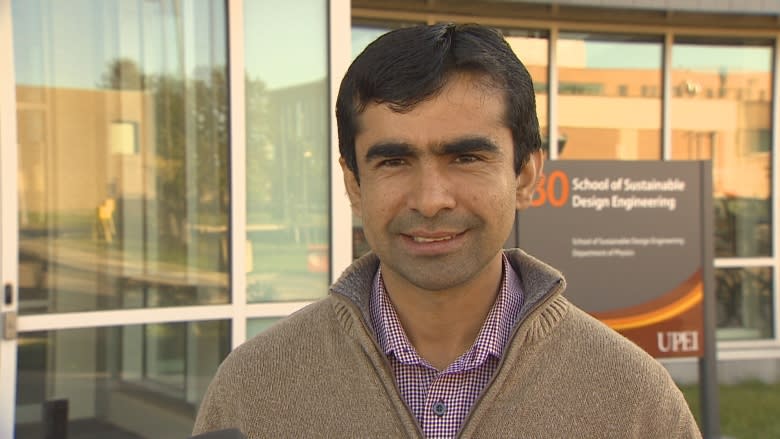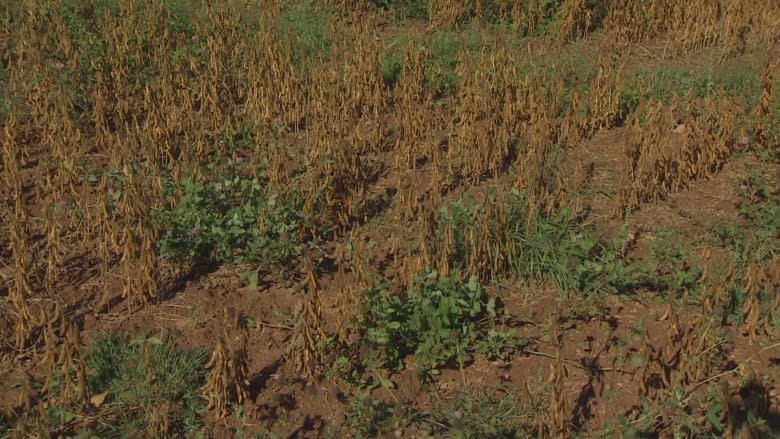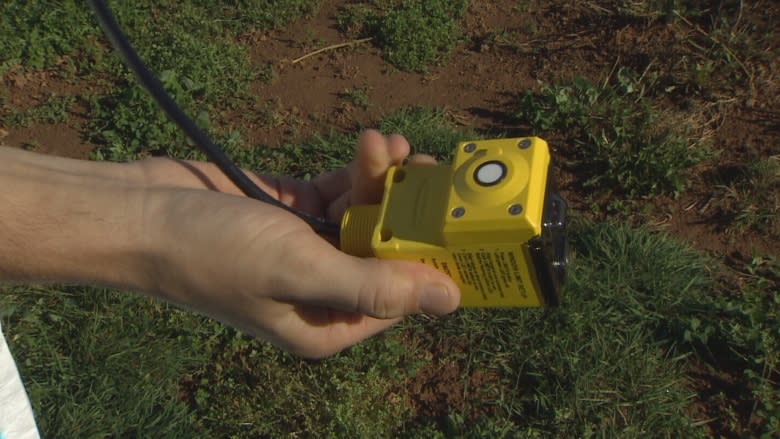High-tech tool could help P.E.I. farmers spray the weeds — but not the plants
A scientist from Agriculture Canada and an engineer from UPEI are teaming up on a project they hope will revolutionize how farmers deal with weeds in their fields.
Their idea is to mount a camera and sensors on a sprayer.
It then uses software to identify what's a plant and what's a weed and turn the sprayer on and off to target the weeds.
"We want to reduce our herbicide use by only targetting the weeds, only applying the herbicides directly on the weeds instead of broadcasting across the entire field," said Andrew McKenzie-Gopsill, a weed scientist with Agriculture Canada.
The combination of the sensors and camera on the tractor allows the spraying to be done in "real time," McKenzie-Gopsill said.
"Past technologies in this area have relied on drone imagery or going out and actually mapping the weed population before you have to spray and then you feed that into your system and it uses that information."
The system will remove that extra step.
"In the morning you wake up and you want to go spray your field, it's all in real time."
As a first step this summer, McKenzie-Gopsill collected data from soybean fields.
"I was collecting data to feed into algorithms so that the computers can identify the soybeans versus the weeds and the bare ground," he said.
The algorithms are the work of Aitazaz Farooque, assistant professor at the UPEI School of Sustainable Design.
"My background in precision agriculture technology is to target the weeds and apply agrochemicals on as-need basis and [McKenzie-Gopsill] is the weed scientist so it was a perfect match," Farooque said.
Precision application of herbicides and fungicides is also better for the environment, he added.
"If you're dumping too many chemicals in the fields in terms of pesticides or herbicides, those go in the runoff, groundwater and also air quality."
The researchers are also aiming to design a system that is affordable and easily understandable for farmers.
"We're using really inexpensive sensors and we will just be able to mount it on a tractor and basically the farmer should be able to just flick a switch and go," McKenzie-Gopsill said.
He anticipates the farmer will need an initial investment up to $30,000, but the money could be recouped within a year or two depending on how many weeds he has.
"The idea is to save them money and they're pretty happy with that idea."
This summer's work was the start of a five-year project, with one of the biggest challenges being training the sensors to recognize what is a plant and what is a weed.
The plan is to build a prototype sprayer that will be mounted to an ATV. They're hoping to do field-scale demonstrations by year three.
"It is really exciting," Farooque said. "I'm an agriculture engineer by background and my dad is a farmer so farming is my passion.
"If I can contribute to the agriculture economy of P.E.I. and Canada, that would be great."
-
MORE P.E.I. NEWS | Magdalen Islands committee fearful of ferry revamp
-
MORE P.E.I. NEWS | Charges in P.E.I. fish kill dropped due to possible 'interpretation of label' of fungicide

